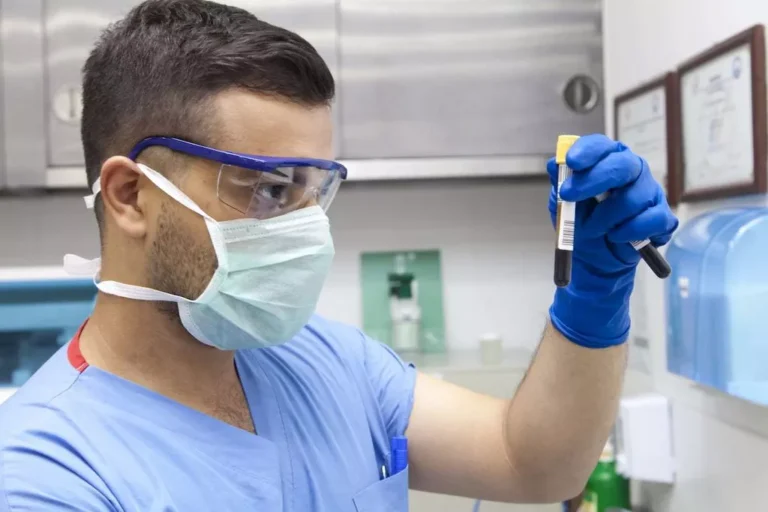
Rather, it appears that alcohol-related changes to the microbiota can produce MAIT-cell dysfunction independent and in addition to changes caused directly by alcohol. Alcohol also influences the functions of the lymphoid tissue and alter the activation, secretion, and functions of crucial immune cells called lymphocytes. Alcohol alters the composition of the IMB, resulting in an alteration of the amount and type of neuroactive substances produced by the microbiota, which may lead to behavioral alteration [79]. Gut–brain communication is disrupted by alcohol-related immune and gut dysfunction [80]. Alcohol modifies the intestinal microbiota, pH and permeability of the intestine, causing an increased entry of endotoxins into our CNS and brain, leading to neuroinflammatory processes.
Impact of AUD on Adaptive Immune Responses
The connection between alcohol consumption and your digestive system might not seem immediately clear. If your pancreas and liver don’t function properly due to pancreatitis or liver disease, you could experience low blood sugar, or hypoglycemia. But more recent research suggests there’s really no “safe” amount of alcohol since even moderate drinking can negatively impact brain health. People who binge drink or drink heavily may notice more health effects sooner, but alcohol also poses some risks for people who drink in moderation.
Pioneering Live Cell Imaging – Yokogawa’s Impact and Innovations
Alcohol can cause both short-term effects, such as lowered inhibitions, and long-term effects, including a weakened immune system. And prolonged alcohol use can lead to mental health conditions like anxiety and depression. That’s because your body already has processes in place that allow it to store excess proteins, carbohydrates and fats. So, your system prioritizes getting rid of alcohol before it can turn its attention to its other work. Your liver detoxifies and removes alcohol from your blood through a process known as oxidation.
- In contrast, systems which directly encounter pathogens from the environment can become more susceptible to infection and injury (76, 77).
- In addition, antigen presenting cells convert vitamin D to 1,25(OH)2VD3, a physiologically active form of vitamin D that is highly concentrated in lymphoid tissues (Mora, Iwata et al. 2008) where it can modulate function of T and B cells which express vitamin D receptors.
- Importantly, treatment with IL-15 and IL-15Rα restores the alcohol-mediated impairment of cNK development and maturation.
Effects on Circulating Immunoglobulin Levels
- T cells expressing the CD8 T cell co-receptor are known as cytotoxic T cells and eliminate host cells infected with intracellular pathogens as well as tumor cells.
- Taken together, all these findings suggest that in utero exposure to ethanol may increase the risk for infections during early childhood or adulthood as a result of alcohol-induced defects in B-cell and T-cell development.
- CAMP has multiple regulatory functions in the cell, and increased cAMP levels can stimulate DNA fragmentation, leading to thymocyte apoptosis (McConkey et al. 1990).
ILC2s are also classically defined by the expression of CRTH2, KLRG1, ST2, and CD25 (16, 17). Interestingly, the expression of CD44 and CD161 on ILC2 seems to differ between mice and humans, as mouse ILC2s are does alcohol weaken your immune system CD44+ CD161-, while human ILC2s are CD44- CD161+ (18). Differentiation from ILCPs into mature ILC2s depends on the transcription factors GATA3 (also required for effector function), RORα, and TCF-1 (19–23).
- Although this chronic weakening of lung function may not cause any immediate symptoms, these effects can manifest when a severe respiratory infection occurs.
- Whereas T-cells are primarily involved with cell-mediated immunity, B-cells play a major role in humoral immunity.
- The adaptive immune system is highly specific to a particular pathogen and is formed by B and T cells lymphocytes.
- The alcohol-induced defects in dendritic cell function include reduced levels of CD80 and CD86 on the cells’ surface (which are necessary to induce activation of T-cells) as well as reduced production of IL-12, which is critical for stimulating naïve CD4+ T-cells to become IFN-γ–producing Th1 cells.
- Such dysregulation can contribute to the development of alcoholic liver disease, and studies on the depletion of cNK cells (via the anti-AsGM1 antibody) show increased steatohepatitis.
- Despite reduced B-cell numbers, people with AUD exhibit increased serum concentration of IgA, IgG, and IgE.
Effects on CD4+ (Helper) T-Cells

This is when the body produces an army of antibodies specific to the incoming threat. This generates “immune memory,” which ensures that the next time the body faces the same invader, the immune system is better equipped to take it down. 5IgA is an antibody that plays a critical role in immune responses in the mucous membranes. These membranes line the body cavities exposed to the external environment (e.g., the GI tract, respiratory tract, nostrils, mouth, or eyelids) and therefore are likely to come in contact with outside pathogens.
Interestingly, central neuroinflammation is maintained after cessation of alcohol consumption, compared to peripheral activation [114] and during periods of abstinence [108]. Finally, in relation to the effect of alcohol on neuroinflammation, a study by Lowe et al. showed an attenuation of alcohol-induced neuroinflammation after reducing the gut bacterial load, as a result of antibiotic https://ecosoberhouse.com/article/how-alcohol-affects-your-kidneys/ treatment [115]. We could hypothesize that by reducing the gut bacterial load, lower amounts of bacterial components would reach the systemic circulation, leading to reduced activation of pro-inflammatory components. The cell-mediated arm of the innate immunity is orchestrated primarily by granulocytes, monocytes/macrophages, dendritic cells, and natural killer (NK) cells.

Thinking of Stopping Drinking? 9 Tips to Succeed
How does drinking alcohol affect health?
